Main symptoms
The main function of the human digestive tract is the processing and promotion of food mass. Therefore, any organ of the gastrointestinal tract, except the digestive glands, has a transit purpose, an entrance and an exit. The stomach is a hollow organ through which the passage of food mass is ensured by inlet and outlet valves. Their muscle tone is complexly regulated by the central nervous system (CNS) and the acidity level of the stomach contents (which is ultimately also regulated by the CNS).
Simply put, the task of these valves is to retain food in the stomach until it is adequately saturated with gastric juice and the absorption of water, salts and alcohols. Therefore, gas formation in the stomach is a symptom of fermentation processes, which under normal physiological conditions should not occur there, since the stomach does not have a natural bacterial flora.
Normal intestinal function, on the contrary, is impossible without a complex balance of activity of pathogenic and beneficial bacteria, which together make up the intestinal flora. Intestinal function is closely related to gas formation, which accompanies most of the biochemical reactions occurring there. Under normal conditions, excess gases are removed naturally.
The accumulation of gases in the digestive tract, which has become pathological, is a consequence of microbiological imbalance and (or) a decrease in intestinal excretory capacity for various reasons.
Medicines for the treatment of heaviness and belching of the gastrointestinal tract
Treatment with medications is prescribed only by a doctor. Pharmacies today sell various drugs and medications to eliminate and treat problems with the digestive tract.

The following medications are considered the most famous and effective:
Panzinorm. Used for dysfunction of the pancreas, as well as for flatulence and dyspepsia. Smecta. This medication is taken for various problems in the gastrointestinal tract, gastritis, ulcers, etc. Mezim. Designed to eliminate belching, heaviness and pain. The course of treatment is prescribed by a doctor. Festal. Helps with discomfort, heaviness, eliminates gases, constipation, improves digestion. Rennie. Prescribed for those who have high stomach acidity, heartburn and belching. Omez. Reduces the production of hydrochloric acid in the stomach and has antiulcer properties. Motilium. This drug is very popular among the population. It is taken for flatulence, nausea, vomiting, cholecystitis, and heartburn. It perfectly eliminates the feeling of heaviness in the stomach after eating.
When taking one of the above medications, you must first read the instructions. The choice of a method of dealing with gastrointestinal problems should first be carried out according to the principle of least harm to the body. First of all, normalize your lifestyle and diet, and if after this there is no improvement, resort to choosing suitable medications.
Causes of belching
Belching is the involuntary release of air (or gases) that has opened the valve into the oral cavity. Its opening can be caused by the following reasons:
- weakening of the muscle tone of the sphincter itself;
- excess pressure inside the stomach;
- excess pressure inside the abdominal cavity;
- human muscular efforts (for example, physical activity).
The weakening of the sphincter can be caused not only by disorders of nervous regulation, but also by organic causes: tumors, ulcers, deformations of the esophageal walls, scar tissue changes as a result of inflammatory processes.
Physical efforts (bending, squats) and tight belting, the diaphragm lowering when inhaling, change the volume of the stomach and abdominal cavity as a whole, squeezing out the air accumulated in them and causing belching.

The cause of excess pressure in the stomach is:
- systematic overeating, leading to enzyme deficiency and “forcing” the stomach to work under increased load;
- stagnation, causing rotting and pathological accumulation of gases;
- overweight.
Delayed evacuation and stagnation of food with the release of gases are caused by:
- decreased peristaltic activity of the stomach (atony);
- pathological deviations in the acidity of gastric secretions in any direction, the development of atrophic changes in the mucous membrane;
- spasm or narrowing of the gastric outlet valve (pylorus), making it difficult to evacuate food mass due to a tumor, ulcer or scar;
- strong psycho-emotional arousal, fear, anxiety, panic and feverish states that suppress gastric secretion;
- ulcerative lesions of the stomach walls;
- chronic inflammatory diseases of the stomach, sometimes having “erased” symptoms;
- consequences of operations, especially those associated with the removal of part of the stomach;
- prolapse of the stomach.
The nature of gastric digestion also depends on the composition and consistency of food, which acts as an “internal” irritant to the glands that secrete hydrochloric acid.
Hiccups and belching at the same time
Hiccups are a spasm of the diaphragm that occurs suddenly. Sometimes, at the same time, belching appears.
The presence of these two symptoms may be a coincidence that is not a hint of any disease, but sometimes, hiccups and belching in a person can indicate that he is sick.
Respiratory spasm
A hiccup is a sharp breath that a person takes involuntarily. It is a consequence of diaphragm spasm. The reasons for this problem are different:
- Hypothermia.
- Emotional stress.
- Alcohol intoxication.
- Overeating, etc.
Rarely, hiccups are associated with pathologies and diseases. However, if it does not go away within 3-4 minutes, it is worth taking measures to eliminate it.
Traditional medicine offers a lot of ways to effectively solve the problem of this annoying disease.
For example, you can hold your breath, massage the wings of your nose, drink water, etc.
Hiccups almost always occur suddenly. And just like that, she disappears.
Belching
Belching, unlike diaphragmatic spasm, rarely occurs suddenly. Its causes are always related to either food or the process of eating. Diseases that provoke belching:
- Stomach ulcer.
- Gastritis.
- Duodenitis.
- Achalasia cardia, etc.
In essence, belching is the process of expelling gases that have accumulated in the stomach through the mouth. In most cases, the causes of its occurrence are associated with overeating. The taste of gases is bitter or sour.
Even healthy people who do not have problems with the gastrointestinal tract can face this problem.
Belching that has neither smell nor taste is called aerophagia. What needs to be done to get rid of it? The fact that air accumulates in the stomach is normal, because while swallowing, a person breathes.
Therefore, burping is needed to remove excess air from the body. To get rid of it, you need to cough vigorously or bend forward several times with your stomach pulled in.
However, the causes of frequent belching may be associated with illness, especially if the removal of gas through the mouth is accompanied by respiratory spasm.
What diseases can cause burping and hiccups?
Hiccups are often accompanied by belching in case of some illness. The causes of these diseases are different: from poor nutrition to nervous shock.
So, most often, belching and respiratory spasm occur together with diseases of the gastrointestinal tract. Let's talk about each illness.
Gastritis
Inflammation of the stomach can be chronic or acute. Belching and hiccups appear together in chronic gastritis. The reasons are the shudder of the diaphragm. Usually, this happens when a patient with gastritis does not follow a diet.
What other symptoms do chronic gastritis have?
- Increased sweating. A person sweats even in a cold room.
- Frequent dizziness.
- The patient's condition is unsatisfactory and he feels tired. The patient gets tired very quickly.
Heartburn is also often present with this disease. The fact is that with gastritis, the level of acidity in the digestive juice increases.
This leads to irritation of the intestinal walls and discomfort in the patient.
If hiccups and belching do not go away for a long time, and a person’s stomach hurts badly, he may start vomiting. Therefore, chronic gastritis must be treated immediately.
Ulcer
When the gastric mucosa is affected by ulcerative inflammation, this is a pathology. The causes of ulcers are associated with improper human nutrition.
In addition to the removal of gases and respiratory spasms through the mouth, with ulcerative pathology the patient suffers from severe pain in the stomach.
Sometimes the pain is so severe that he has to resort to taking painkillers.
If the hiccups from an ulcer do not go away for a long time, the patient experiences frequent belching and abdominal pain, and he may begin to bleed.
How does an ulcer appear?
- Pain is a frequent companion of a person affected by this disease. It is localized in the navel, stomach and chest. Patients often complain of a burning sensation. The pain is aching, dull in nature.
- The patient may spontaneously experience a feeling of nausea. In some cases, this feeling leads to vomiting.
- The respiratory spasm does not go away for more than half an hour.
- The patient's appetite decreases. Lack of appetite is associated with unpleasant sensations that occur after a meal.
- Belching is chronic.
- Due to a malfunction in the digestive process, the patient begins to lose weight. Weight loss occurs quickly and dramatically.
- There may be blood in the patient's stool. The specificity of the ulcer can be judged by blood spots in the stool. For example, fresh red drops indicate that a person has a duodenal ulcer.
But if he has black or dark red blood, then most likely the patient has symptoms of the digestive tract.
Duodenitis
The specificity of duodenitis is a sudden onset of pain. Pain appears in different parts of the abdomen. Belching with duodenitis occurs often, and with it hiccups.
Other symptoms of the disease:
Gastritis? Ulcer? To prevent a stomach ulcer from turning into cancer, drink a glass...

The best FOLK remedy for GASTRITIS and stomach ulcers!
- Loss of appetite. The man refuses to eat.
- Pain syndrome becomes more frequent in spring and autumn.
- Vomiting occurs periodically. Constant feeling of nausea.
- Heart rate increases.
- Heartburn.
- Flatulence. The stomach is bloated after every meal.
Achalasia cardia
This disease occurs when there are problems with the digestive system. When the tone of intestinal motility decreases, a person experiences pain when swallowing.
He starts burping. He hiccups periodically, and the diaphragmatic spasm does not go away for 15 minutes or more.
The patient experiences severe pain when swallowing solid food. Since achalasia cardia is accompanied by esophageal dysfunction, food stagnates in the intestines during digestion. For this reason, painful sensations occur.
In severe cases of the disease, the patient experiences pain when swallowing saliva.
Achalasia cardia is a rather dangerous disease that requires timely treatment. The fact is that if treatment measures are not taken in time, this can lead to deformation of the esophagus.
It can occur due to stagnation of food that is not pushed through to the stomach. This leads to constant discomfort. As a result, the patient becomes irritable and always arrives in a bad mood.
Belching, hiccups and pain are not all the symptoms of this disease. Achalasia cardia is also characterized by the presence of:
- A person's refusal to eat. As a result, he quickly loses body weight.
- Frequent vomiting. Vomiting is explained by the inability to digest food. After vomiting, belching does not go away for a long time.
- The patient does not leave the feeling of a lump in the throat.
- His stomach is constantly bloated. Flatulence occurs due to stagnation of food in the esophagus.
- Hiccups are accompanied by severe chest pain.
As the disease progresses, the shape of the patient's digestive tube changes in size.
Digestive disorder
Belching and hiccups can occur simultaneously with a digestive disorder. What causes this disorder?
It occurs as a result of any pathologies and malfunctions of the gastrointestinal tract.
Typical symptoms of a digestive disorder:
- The person does not leave the feeling of nausea.
- Frequent vomiting.
- Diarrhea or constipation.
- Heartburn is accompanied by belching.
- After every meal a person begins to hiccup.
- The patient is left with a feeling of heaviness in the chest area.
- He experiences aching pain.
How to help a patient
There is no universal method for treating digestive pathologies and disorders. Treatment depends on the disease and the form of its course.
However, there are several simple ways to relieve a patient's condition with a digestive disorder:
- It is necessary to give the patient water. You should drink it in small sips, preferably while standing. If the patient cannot stand because he is in a supine position, his body should be tilted forward before giving water.
- Holding your breath will make the patient's condition a little easier. This method helps relieve diaphragmatic spasm.
- The patient should be provided with complete rest.
- You can't feed him solid food.
Useful video
Causes of flatulence
Normal intestinal function is impossible without adequate preparation of the food mass in the stomach and timely entry of pancreatic juice and bile into the lumen of the duodenum.
Increased acidity “locks” the lower gastric sphincter, weakening intestinal digestion and causing sluggish intestinal motility.
A decrease in acidity and accelerated evacuation of food leads to the fact that food is digested mainly in the intestines, causing its overload. This is especially true for the digestion of muscle fibers and connective tissue.
Under these conditions, the complex interaction of bile and pancreatic juice occurring in the duodenum becomes pathological, especially against the background of diseases of the biliary tract and/or pancreas.
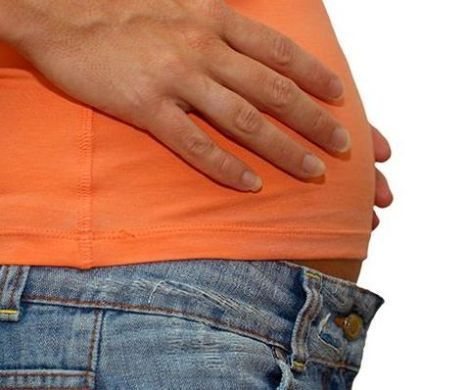
The main causes of flatulence in the general case are:
- disorders of the nervous regulation of intestinal activity;
- organic disorders of intestinal motility;
- inflammatory foci of the intestinal walls, ulcers and tumors;
- infections;
- disturbances of microbiological balance in the intestine;
- insufficiency of the digestive glands, leading to enzyme deficiency, or banal overeating with the same consequences;
- parasite infestation;
- insufficiency of gastric digestion.
Weakening of the lower gastric valve facilitates the reflux of decomposition products in the form of gases from the duodenum into the stomach and further into the oral cavity, causing bitter belching.
Do you still think that healing your stomach and intestines is difficult?
Judging by the fact that you are now reading these lines, victory in the fight against diseases of the gastrointestinal tract is not yet on your side...
Have you already thought about surgery? This is understandable, because the stomach is a very important organ, and its proper functioning is the key to health and well-being. Frequent abdominal pain, heartburn, bloating, belching, nausea, bowel dysfunction... All these symptoms are familiar to you firsthand.
But perhaps it would be more correct to treat not the effect, but the cause? Here is the story of Galina Savina, about how she got rid of all these unpleasant symptoms... Read the article >>>
Belching air after eating is a normal phenomenon that has happened to absolutely every person. Even in infancy, the child, during feeding, swallows a small amount of air, which then comes out. In adulthood, this phenomenon is normal if it occurs rarely and after certain foods, such as carbonated drinks or fatty and heavy foods. But if belching is accompanied by nausea and heaviness in the stomach, you should consult a doctor, especially if the discomfort recurs periodically.

Even those who do not suffer from diseases of the gastrointestinal tract periodically experience the release of gases from the stomach after eating, which is not accompanied by any unpleasant sensations. The gases that come out may not smell like anything or may have the smell of food that the person ate before.
The reasons may be as follows:
Food in a hurry and dry; Active conversation while eating; Emotional stress; Binge eating; Frequent chewing of gum; Aerophagia, in which a person swallows more air during a meal than is necessary to regulate pressure in the stomach;
Most women complained of symptoms such as heartburn, nausea, belching and discomfort during pregnancy, but if the patient did not have gastrointestinal diseases, these unpleasant phenomena will go away on their own, since they are caused by an enlargement of the uterus during pregnancy, as a result of which the internal organs become severely are compressed and acid is released into the esophagus.
Eating the following foods may cause increased gas formation and subsequent belching of air:

strong coffee or tea; carbonated drinks; ice cream and dairy products; fatty food; dishes with a lot of onions or garlic; legumes, which also cause severe flatulence.
If there is constant belching and nausea, accompanied by discomfort and pain in the epigastric or intestinal area, then this is a reason to seriously think about your health.
Pathological causes may be the following:
Gastritis in a chronic form, during an exacerbation there is pain in the stomach, nausea and belching of air with an unpleasant odor, as well as heaviness and heartburn; Peptic ulcer; Problems with the gallbladder, the main symptoms of which are bitterness in the mouth, nausea and belching; Acute pancreatitis, or inflammation of the pancreas, which causes nausea and belching after eating, often ending in vomiting; Duodenitis, which is an inflammation of the mucous membrane of the duodenum; Gastroesophageal reflux disease is associated with disruption of the muscle that closes the inlet of the stomach, the contents of which are thrown into the esophagus. This disease is characterized by heartburn, nausea, belching, heaviness in the stomach, and gases. Cancer, which first manifests itself as ordinary gastritis, should be examined especially carefully if frequent belching occurs with a sour or rotten odor, bloating is felt, then appetite decreases, the patient quickly eats a small amount of food.
In addition to reasons related to the gastrointestinal tract, nausea, flatulence, belching and discomfort after eating can be associated with the following problems:

If there are disturbances in the blood circulation and functioning of the cardiovascular system, nausea occurs, which does not depend on food, shortness of breath and pain in the sternum; Changes in blood pressure are characterized by dizziness and nausea in the morning; Rapid weight loss, constant fatigue, nausea after eating may indicate problems with the thyroid gland; The infectious disease causes nausea, which manifests itself an hour and a half after eating, and there is a bitterness in the mouth.
Sour belching is caused by the following diseases:
Gastritis; Peptic ulcer; Increased acidity, in which gastric juice is more concentrated than necessary; Gastric reflux, or the release of the contents of the digestive organ into the esophagus; Oncological disease.
Bitter belching appears when:
Gastroduodenal reflux, which causes bile to enter the stomach; Chronic duodenitis; Injuries or tumors that cause compression of the duodenum; Pregnancy; Operations involving excision of the gastric sphincter muscles; Taking muscle relaxants and anti-spasm drugs.
Belching with the smell of acetone is characteristic of diabetes mellitus.
For severe vomiting due to diseases of the gastrointestinal tract, drugs containing metoclopramide are usually prescribed, as well as enzymes and a special diet for the patient, aimed at reducing the concentration of acid in the stomach. If the cause of this condition is poisoning, it is necessary to take enterosorbents and drink large quantities of water.

In cases where the pathology cannot be cured using drug therapy, surgical intervention is necessary, for example, in case of appendicitis or gastric ulcer.
If the causes of discomfort lie in third-party diseases, then first of all, therapy should act on the root cause, for example, in case of disturbances in the functioning of the cardiovascular system, the main effect should be on the blood vessels or heart, in case of problems with the thyroid gland, hormonal therapy should be prescribed, and so on. .
If a person does not have any disturbances in the functioning of the gastrointestinal tract, then the following tips will help get rid of belching air after eating:
While eating, you should not talk or rush, you need to chew your food thoroughly; After eating, you should not engage in vigorous physical activity; If some foods are the main reason why heartburn, flatulence and heaviness appear after eating, then you should give them up. This is especially true for soda and beer; You should not overeat, as in this case the unpleasant symptoms after eating will only intensify; Do not drink too strong and hot tea and coffee; It is better to remove fatty or too spicy foods from the diet, they can cause heartburn and heaviness; Under no circumstances should you consume products that have expired; this can cause not only heartburn and nausea, but also severe poisoning.

If a person has followed these simple rules before, but experiences pain, an unpleasant taste in the mouth, heartburn and other unpleasant symptoms for no apparent reason, it is imperative to consult a doctor.
Only careful attention to your own health will help you get rid of discomfort in the stomach, which in no case should be ignored. Such a serious disease as stomach cancer in the first stages is practically asymptomatic and painless, so it is very difficult to notice it without regular examinations.
It is important to remember that even such a trifle as belching and nausea can indicate serious illnesses.
After eating, any person from time to time feels discomfort in the waist area. Some people do not pay any attention to these symptoms, hoping that everything will work out. The main signs of such discomfort are: bloating, heaviness in the stomach, belching of air, constant gas, heartburn. It is important to find out what it could be and what disease accompanies the listed symptoms.
Bad habits
Bad habits traditionally mean alcohol abuse and smoking. Indeed, systematic consumption of alcohol and alcohol-containing drinks, especially low-quality ones with a high content of fusel oils, causes irritation of the gastric mucosa, similar to a thermal burn. The inflamed mucosa, densely dotted with microscopic blood vessels and glands that secrete hydrochloric acid, digestive hormones and protective mucus, ceases to perform its functions. The nutrition and blood supply to the upper muscular layer of the stomach is disrupted, secretion decreases, which gradually leads to complete gastric atrophy and loss of gastric function.
The damage caused to the gastric mucosa by tobacco smoke is not so obvious, so few people think about it. But the consequence of prolonged contact of carcinogenic tars contained in cigarette smoke with the inner surface of the stomach is cancer of the esophagus and stomach. The prerequisites for their occurrence have been developing over the years, but for heavy smokers they always come as a tragic surprise.
Note! Smoking on an empty stomach and smoking immediately after eating is especially dangerous.
When the stomach is empty, conditions are created for smoke to come into contact with the entire surface of the unprotected mucous membrane. After eating, there is an intense rush of blood to the stomach, ensuring complete digestion and absorption of its products (this fact explains the cause of afternoon drowsiness). Smoking causes severe spasm of blood vessels, paralyzing digestive function.
Causes
The causes of flatulence with air belching can be different. In most cases, a discomforting state appears after festive feasts. If a person does not have any diseases of the gastrointestinal tract, then the causes of bloating are the result of poorly digested food or incompatible foods. Because of this, there is a strong accumulation of gases, causing flatulence.
Main reasons
The main and most common causes of increased gas formation with belching include:
Poor nutrition. Food must be taken at certain hours. You can't eat it dry. Otherwise, the person’s stomach will begin to swell. Rapid swallowing of food, which is a consequence of poor chewing. At the same time, while eating, a person swallows a large amount of air. Incompatibility of products. You should not consume sweets with salty or fried foods, or dairy products with fresh vegetables. Incompatible combinations cause stomach pain, discomfort and bloating. The presence of intestinal parasites in the body. Increased gas formation and belching of air can be caused by Giardia, Trichomonas, and Cryptosporidium. Quick conversation. If a person often talks on the phone, then the cause of flatulence may be swallowing air. Nausea and stomach cramps may be due to chewing gum. The fact is that during the chewing reflex, the brain receives information supposedly about chewing food. The body thinks that the person is consuming food. Gastric juice is released, which eats the stomach lining. Because of this, flatulence is formed, which in the future may require serious treatment.
Other reasons
Other reasons may not occur in all people. They are not common, occurring only in isolated cases. These include:
Frequent constipation, which causes the accumulation of gases and the development of flatulence; Sedentary lifestyle. Therefore, it is necessary to give the body at least slight physical activity; The formation of allergic reactions to certain foods, which are accompanied by a runny nose and rash; Frequent smoking. Having bad habits causes stomach pain. In this case, gases accumulate; Psychoses. Nervous tension and breakdowns negatively affect the human body. If a person often worries and lives in constant stress, this can lead to the development of flatulence; Also, the causes of the disease may be an anatomical defect in the structure of the stomach, in which gases accumulate; Failure of the small and large intestines; In very rare cases, the causes of belching rotten eggs may be liver disease and cardiovascular diseases;
Frequent belching of rotten eggs and increased gas production are not a separate disease. Such manifestations are considered to be a consequence of diseases of the gastrointestinal tract.
Power supply errors
Severe eating disorders can rightfully be classified as bad habits that cause persistent disturbances in the gastrointestinal tract, and they are as follows:
- immoderation and indiscriminate eating;
- abuse of salty, fried and fatty foods, which suppress peristalsis;
- manic addiction to fast food;
- hasty eating, leading to insufficient chewing of food;
- unjustified unbalanced diets, ill-organized fasting;
- predominant consumption of food that has undergone deep industrial processing - canned food, frozen semi-finished products;
- unjustified use of antibacterial drugs that can cause irreparable harm to the body.
Note! An important indicator of good bowel function is stool regularity.
Simultaneous consumption of incompatible foods, mixing raw and cooked foods, sweet desserts immediately after meals - all these factors increase the likelihood of belching and increased intestinal gas formation.

Intolerance to a number of food products is caused by the absence or insufficient production of digestive enzymes necessary for their processing and absorption, as well as allergic reactions.
What is heartburn?
Heartburn is a symptom of gastroesophageal reflux disease (GERD). When acid from the stomach enters the esophagus, it can cause burning pain in the chest. Symptoms of heartburn are varied:
- burning in the chest;
- a burning sensation that may constrict the throat;
- a feeling of tightness in the throat and chest;
- sharp chest pain.
For some people, heartburn may present as chest pain. For others, it may be a sore or burning throat. Heartburn often occurs after eating. A person may experience heartburn if they lie down or bend over shortly after eating. Some common heartburn triggers include:
- eating heavy fatty foods;
- spicy food;
- alcohol;
- acidic foods such as tomatoes.
Risk factors that increase the likelihood of heartburn:
- smoking;
- pregnancy.
Medicines that may increase the risk of heartburn:
- some antihypertensive drugs;
- antihistamines;
- certain drugs to treat asthma.
The importance of eating in moderation
Hasty eating precludes thorough chewing of food, which means its adequate saturation with saliva, which is part of the digestive process, a prelude to further processing in the stomach. Insufficient grinding of the food bolus reduces the ability to absorb nutrients and indirectly impoverishes nutrition. In addition, rushing while eating causes involuntary swallowing of air, which creates additional preconditions for belching.
The attractive appearance of food, beautiful dishes and serving, and concentration on the process of eating stimulate the appetite, which means the separation of gastric juice and complete high-quality digestion.
Nausea and belching during early pregnancy
Because pregnancy is not only a joyful event, but also a time of various changes in the hormonal background of the expectant mother, which is reflected in the functioning of the digestive tract. For this reason, a woman experiences belching and nausea.
In pregnant women, belching is not only the result of hormonal changes occurring in the body, but also due to an enlarged uterus. It changes the pressure in the peritoneum and the stomach changes location. A similar problem can arise during exacerbations of existing chronic diseases during this period, and also due to the fact that food in the stomach is not completely digested, and its walls stretch.
Belching can appear when a pregnant woman turns from one side to the other and while she is in a horizontal position.
Everything is easier with nausea. Its appearance during pregnancy in the early stages is confirmation that conception has occurred. In addition, this symptom is one of the components of toxicosis caused by the woman’s process of getting used to her new position. And if a pregnant woman has problems in the digestive tract, then the risk of nausea is much higher.
Pain in the stomach, combined with belching and nausea, can occur in people who are not used to denying themselves food and often overeat. These symptoms can also cause:
- eating shortly before going to bed;
- bad habit of washing down food with water, tea or milk, due to which the concentration of juice in the stomach decreases and the process of digesting food becomes more difficult;
- eating in a hurry, without chewing food thoroughly;
- drinking fruit juices or fruits in large quantities immediately after a heavy meal.
If nausea, belching and stomach pain occur due to the factors listed above, then these symptoms will disappear on their own. But if they occur systematically, it is better to seek advice from a gastroenterologist.
Pathologies of the digestive glands
The duodenum is the part of the intestine where the final enzymatic processing of food occurs, since the secretion of the small intestine is insignificant and for a number of reasons has not been well studied.
Bile and pancreatic secretions enter the intestinal lumen almost simultaneously, activating each other and the enzymes reflexively secreted by the intestine itself when food enters.
Therefore, untimely intake or deficiency of at least one of the components disrupts the entire system of their interaction and fatally affects the quality of digestion. The cause of this may be liver failure, cholelithiasis, bile duct dyskinesia, inflammatory changes in tissues, or blockage of the pancreatic ducts.
List and brief description of gastrointestinal diseases
The appearance of belching along with flatulence and heaviness often signals serious abnormalities in the human body.

Gastritis. When it occurs, increased or insufficient secretion of gastric juice occurs, the mucous membrane becomes inflamed. Often the cause of the disease is the following factors: alcoholism and smoking, poor diet, constant stress. Stomach ulcer. A chronic disease in which abscesses form on the gastric mucosa. This disease is characterized by severity, heartburn, vomiting, severe pain and can lead to complications. Dysbacteriosis. Violation of the beneficial composition of the intestinal microflora, resulting in a malfunction of the stomach. In this case, the patient experiences frequent rumbling, bloating, and changes in stool. Pancreatitis. Inflammation of the pancreas occurs. The following symptoms are characteristic of pancreatitis: nausea, vomiting, severe pain in the left or right hypochondrium, general weakness. Cholecystitis. Inflammation of the walls of the gallbladder and disruption of its functions. This organ takes part in the digestion of food. During the period of exacerbation of chronic cholecystitis, symptoms such as belching, vomiting of bile, stool disturbances, bitter taste in the mouth, and pain on the right side occur.
Diagnostics
The set of diagnostic measures is determined by the doctor depending on the type and severity of symptoms. It usually consists of fibrogastroduodenoscopy (FGDS), which allows you to visually assess the condition of the mucous membranes of the esophagus, stomach and duodenum, and exclude the presence of tumors and ulcerations. A similar procedure in relation to the intestines is called colonoscopy.
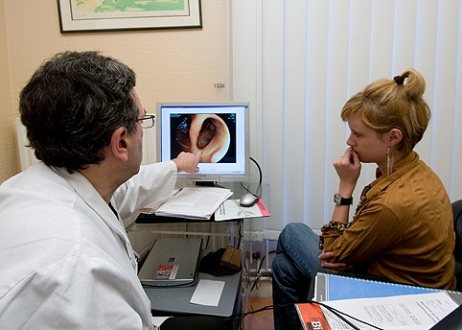
During laboratory tests, a detailed analysis of blood and stool is prescribed (including for the presence of parasites, undigested food debris, hidden blood), stomach acidity and the presence of infections are determined.
Diagnosis of diseases
Firstly, it is necessary to establish the cause of the unpleasant symptoms, because they may indicate the presence of serious problems in the gastrointestinal tract. Secondly, if the examination does not reveal any pathologies, you need to first understand your lifestyle.

Eliminate all bad habits, change your diet, start eating a healthy diet and chew your food slowly. It is also not recommended to overeat at night and the last meal should be two or three hours before bedtime.
In what cases should you seek help from a doctor? If symptoms such as heaviness in the stomach, belching of air, constant gases and flatulence bother you for long days, you should consult a specialist. He will explain what it could be. During the examination, the gastroenterologist will refer you to the examinations he has prescribed. It could be:
general and biochemical blood test, fibrogastroscopy, ultrasound of the gastrointestinal tract.
You should learn to control your emotions and not succumb to stressful situations, as they will negatively affect not only the functioning of the heart and blood vessels, but also the functioning of the entire intestine.
Treatment
The therapeutic regimen depends on the examination results and diagnosed diseases, type of acidity, medical history, age, lifestyle and individual characteristics of the patient.
Drug therapy
In general, drug treatment includes:
- prescription of drugs that stimulate peristalsis (prokinetics);
- prescription of antispasmodics;
- the appointment of sorbents that cleanse the intestines;
- if necessary, prescribe anti-inflammatory, enzyme and antiparasitic drugs.
It must be remembered that belching and flatulence are symptoms, external manifestations of a lurking disease. The doctor’s task is to identify it and prescribe adequate treatment. The effect of self-administration of espumisan, reltser and meteospasmil will be temporary.
Diet requirements and food intake rules
The recovery reserves of the human body are colossal. Sometimes only a commitment to a healthy lifestyle and compliance with dietary requirements allows you to restore the fragile balance of digestive processes and get rid of fetid, painful belching and flatulence.
When belching and flatulence, the diet includes thermally and mechanically processed foods, easily digestible dishes that require minimal energy and “enzyme” expenditure by the body.

The following are strictly excluded:
- foods that cause gas (legumes, mushrooms, melon, pears, raw fibrous vegetables and fruits);
- carbonated drinks, fermentation products (beer, kvass, yeast baked goods);
- chewing gum, chips.
It is extremely important to eat in small portions to avoid overloading the stomach, to adhere to a daily routine and certain hours of eating: the production of digestive enzymes during these hours increases reflexively.
Folk remedies
To reduce gas formation, any herbs containing essential oils are suitable. They perfectly stimulate peristalsis and disinfect intestinal contents. The ideal option is dry spices such as cumin, coriander, anise and dill seeds. You can simply chew a pinch of any grains in dry form after eating.
To relieve disturbing symptoms in the stomach, take decoctions based on chamomile or sage flowers. Dosage forms from these plants have a bactericidal effect and help relieve the effects of food stagnation.
Prevention
It is worth noting that bloating, nausea and burping rotten eggs are easier to prevent than to treat. Therefore, it is necessary to carefully monitor your health. Tips to help prevent gas accumulation in the intestines:
It is necessary to spend more time outdoors in parks or forests with a large amount of green space; Go to bed on time and get enough sleep. Sleep should last at least eight hours; It is necessary to refuse low-quality and expired food; You should do gymnastics and active sports. You need to give your body some physical activity; It is recommended to exclude sweet soda, chewing gum, and sweets containing dyes from the diet;
Bloating and belching of rotten eggs is not a separate disease. Such manifestations are the result of a malfunction of the body or diseases of the gastrointestinal tract. Before starting treatment, it is necessary to find the causes. Self-medication is not recommended.
If symptoms worsen, you should consult a professional specialist.
Causes and symptoms
Bloating and constipation, flatulence are associated with disorders of the digestive system. Symptoms can be triggered by poor diet, stress, and malfunctions of other organs.
Zaporov
Causes:
- violation of the diet, lack of foods containing fiber in the menu;
- long-term medication use;
- a sedentary lifestyle leads to constipation and “lazy stomach” syndrome;
- excessive consumption of fast food;
- prolonged stress;
- metabolic disorders in diabetes mellitus, hypothyroidism;
- pathological processes in the colon, the presence of tumors.
Symptoms:
- 2 or less urges to defecate in 7 days.
- Painful sensations during defecation.
- Feeling of incomplete bowel movement.
- “Sheep feces”, which is in the form of hard, dense small balls.
Flatulence, bloating and rumbling
Causes:
- violation of motor function of the stomach, intestinal motility;
- congenital defects of the esophageal wall;
- presence of parasites (helminthic infestations);
- side effects after surgery;
- intestinal obstruction;
- disturbance of the microflora of the gastrointestinal tract (GIT) due to long-term use of medications;
- nervous feelings, depression;
- improper organization and technique of eating: accumulation of gases and, as a result, rumbling in the stomach, causes the intake of incompatible foods, poor chewing and rapid swallowing of food.
What causes bloating and belching
In most cases, a person does not pay attention to the beginning of the process of increased gas formation. Symptoms appear gradually, but then accompany all the time. While the signs “gain strength,” the person himself gets used to the symptom of bloating over time. After all, it passed on its own before, and now it will pass. Many people think so.
Most people also feel the same way about burping air. After all, almost every person experiences it periodically after eating. This is a natural process.
However, in some cases, belching and exhaust gases begin to bother you constantly.
And this already indicates that the developing pathology has “gained strength.” After this, it is impossible to fight it without medical help.
It should be borne in mind that belching and bloating can have both natural and pathological causes.
Physiological factors
Physiological reasons for the appearance of such symptoms include:
- Irrational menu. Eating incompatible foods together. This forces the digestive organs to create priorities when processing them. In this case, complex chemical reactions occur, due to which gas formation occurs along with belching.
- Binge eating. In order to process a large amount of food, the body must synthesize additional amounts of enzymes. However, they do not have time to be produced. In this case, the food lump lingers in the stomach. This, in turn, causes pain in the abdomen when it is bloated and diarrhea.

- Excessive consumption of drinks containing gases. This addiction leads to the fact that a person often burps, while at the same time the carbon dioxide remaining inside the stomach provokes the fermentation process.
- Eating food very quickly. Such a meal leads to excessive swallowing of air. This manifestation has received its own name in medicine - aerophagia.
- Predominance of gas-forming products in the diet. The constant presence of cabbage, lamb, fresh baked goods, radishes and legumes in the menu leads to flatulence.
- Eating on the run, quick snacks, especially fast food products, lead to poor absorption of the food eaten.
- Bad habits. Not only alcohol, drunk frequently and in large quantities, has a negative effect on the stomach. Smoking is also harmful. Smoke has a bad effect on blood circulation, while stimulating additional production of gastric juice in the stomach. This leads to the development of gastritis and belching.
Personal intolerance to individual components included in food also leads to belching and bloating. Certain fruits or vegetables, grains, or dairy products may contribute to this manifestation.

Quite often, belching, gas formation and bloating are observed in women during pregnancy. Such difficulties in digesting food are manifested due to the following factors:
- During pregnancy, additional progesterone is produced in large quantities. This female sex hormone has an effect on reducing motility of both the stomach and intestines.
- The growth of the uterus leads to additional pressure on neighboring organs. Because of this, gases are retained in the stomach.
- Pregnant women change their food preferences, and in some cases quite dramatically. Unusual food leads to belching of air and nausea.
Small children often suffer from flatulence. In infants, the enzymatic system and digestive organs are not fully formed. Because of this, frequent belching occurs, the stomach bloats, constipation occurs, or loose stools occur.
When bottle-fed, the baby takes in a lot of air due to the large hole in the nipple. This causes belching, and in some cases, bloating. Intolerance to certain chemicals included in the mixtures can also lead to this result. The baby may burp due to the presence of lactulose or maltose in artificial nutrition. These same substances cause bloating as a result of intolerance.
Diseases
Constant bloating and gases can be observed with the following pathologies:
- Anatomical defects. These may be congenital problems with the development of both the esophagus and pathologies identified in the stomach. Among them there are such defects as narrowing of the lumen at the outlet of the stomach, kinks or hernia. Such anatomical abnormalities in the human body can lead to a frequently growling stomach. This occurs due to the fact that a lot of gases accumulate in the stomach cavity.
- Pathologies associated with dysfunction of the stomach or esophagus. This can be either improper peristalsis, leading to a slowdown in the movement of the food bolus, or an increase or decrease in the acidity of gastric juices. Sour belching is often a symptom accompanying the development of ulcers in the stomach. With a lack of hydrochloric acid produced, the food bolus stagnates. In this case, the belching may have a putrid odor.
- Impairments in the functioning of the liver, as well as the gallbladder, as its component. Without the normal functioning of these organs, a complete digestion process is impossible. They secrete certain enzymes into the duodenum, where almost the final digestion of any food occurs. Excessive production of bile leads to belching with a bitter taste. In this case, nausea with the urge to vomit is possible.
- Malfunction of the duodenum or pancreas. Inflammatory processes in these organs (duodenitis or pancreatitis) lead to belching, and abdominal pain may appear.
- Disturbances in the functioning of the small or large intestine. These organs perform complete absorption of nutrients and fluids and remove waste residues from the body. Violation of their activity leads to an imbalance of microflora and belching with unpleasant odors.
- Cancerous tumors. Malignant neoplasms lead to the creation of an obstruction in the stomach; food and water pass through with difficulty and slowly. This leads to belching, nausea, and often vomiting.
Any failures listed above can only be identified after visiting a doctor and conducting a comprehensive examination.

Emergence
Probably, many of us notice that belching and bloating are observed after heavy holidays, accompanied by eating a large amount of food. Abdominal pain can also occur after eating unusual and difficult to digest foods.
It is necessary to note that the accumulation of gases in the gastrointestinal tract can occur for the following reasons.
Causes of belching:
- Errors in nutrition when a person eats dry food (in this case he cannot avoid flatulence). The same thing happens in the body if you allow significant breaks between meals.
- Poor chewing of food and hasty swallowing rapidly increases gas formation in the stomach.
- Simultaneous consumption of incompatible foods. For example, the appearance of flatulence and heartburn is facilitated by the consumption of salty and sweet foods, dairy products and vegetables at the same time. Diarrhea often develops from these combinations.
- The presence of parasites in the gastrointestinal tract (giardia, trichomonas, etc.).
- Quick conversations (if a person is talking on the phone, he may swallow air). This causes gases to enter the stomach and intestines.
- Eating large amounts of chewing gum. It causes increased gas formation and increased production of gastric juice. The acid formed during these processes corrodes the gastric mucosa, which causes heartburn and nausea.
Important! If you notice that the belching comes with a bad smell, diarrhea, heartburn, lethargy and weakness appear, you should immediately consult a doctor. The same must be done if the above problem appears constantly. This combination of symptoms may indicate human intoxication with helminths.
Therapy methods
Treatment of flatulence and belching is carried out taking into account the reasons that provoked the development of these symptoms. Therapy can occur through medication, using traditional methods, or a special diet.
Use of pharmaceutical drugs
If you have flatulence and signs of intestinal upset, you can take Smecta, activated charcoal. They will rid the body of toxins and reduce the sensitivity of the digestive tract to external irritants. When these symptoms are caused by disruption of the stomach or pancreas, it is advisable to use enzyme agents. The most popular of them are Mezim, Pancreatin, Creon.
To eliminate gases, carminative drugs are used - Espumisan, Simethicone. These drugs do not produce a systemic effect on the body, so they can be used during pregnancy. Doctors also recommend treating flatulence with probiotics.
Folk remedies and diet
You can get rid of bloating with dill or fennel seeds. They are poured with boiling water, left for several hours, and then consumed throughout the day in between meals. Simple potato juice can eliminate flatulence. Drink 1-2 tablespoons on an empty stomach. This treatment lasts until the unpleasant symptoms disappear completely.
The diet for flatulence consists of excluding fatty and fried foods from the diet. All food should be as light as possible, consisting of dietary meat, fish, thermally processed vegetables and fruits. It is also recommended to avoid carbonated drinks, confectionery and flour products.
Possible diseases
Not all cases of heartburn and bloating are due to poor diet or other safe causes. Unpleasant symptoms may be caused by one of the gastrointestinal ailments. If a person rarely goes to doctors, he may not even know about the presence of the disease, so if a burning sensation in the chest and flatulence appear, the right decision would be to visit a doctor.
- The modern rhythm of life often leads to the appearance of pancreatitis . Due to chronic inflammation of the pancreas, there is a feeling that the stomach is swollen. With this disease, a burning sensation in the chest, diarrhea or constipation, as well as girdling pain in the back may appear. In the initial stages, it is difficult to recognize the onset of the disease.
- Intestinal obstruction is a pathology that can be either congenital or acquired. Because of it, the patient may complain of heartburn, increased gas formation and constipation. The disease comes in different types, but in any case, obstruction poses a danger to human health and life.
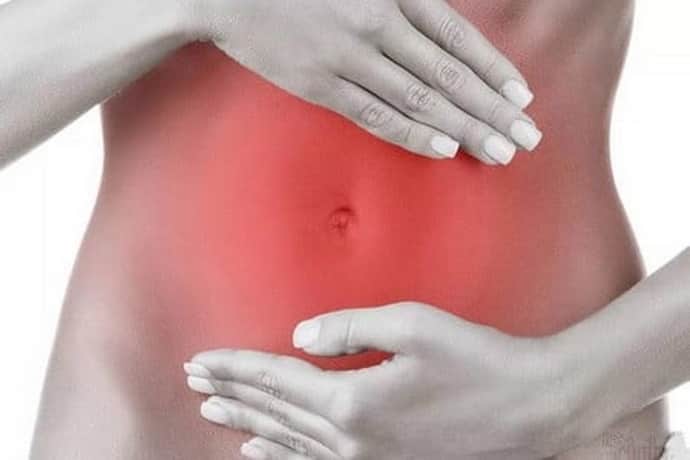
- Irritable bowel syndrome does not manifest itself as pathological changes in the gastrointestinal tract, but the person suffers from flatulence, pain and heartburn. Stressful situations, poor heredity and intolerance to specific foods lead to the disease. Although the disease is not life-threatening, it can significantly worsen the quality of life.
- Atrophic gastritis is characterized by the loss of the ability of stomach cells to produce secretions for digesting food. The food that enters the body stagnates, fermentation begins, which leads to heartburn and bloating. Ordinary gastritis also leads to these symptoms, regardless of whether a person has high or low acidity. Only properly selected treatment will help get rid of the pathology.
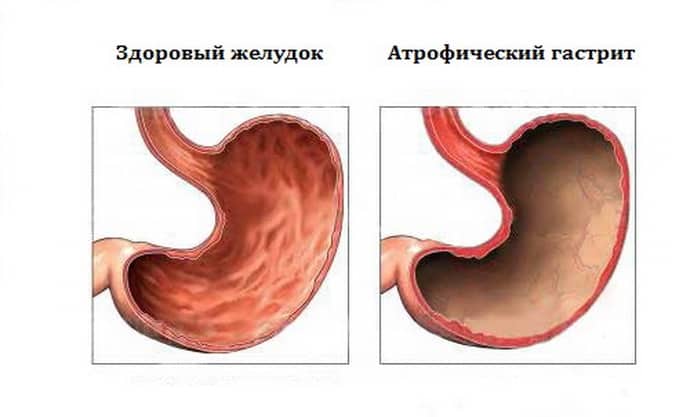
Nutrition
Proper nutrition is the key to normal functioning of the gastrointestinal tract. If burning and flatulence occur, you should reconsider your menu and eating regimen. It is best to eat 4-5 times a day in small portions, preferably at the same time. It is worth adding fruits, cereals, and fresh vegetables to the menu. If a particular ingredient causes bloating, you should avoid it.
You need to drink enough water - at least 1.5 liters per day for an adult. The liquid helps eliminate constipation, prevents heartburn and flatulence.

Products should be prepared correctly; it is best to boil, stew and bake them. You should avoid the fried diet, as it is not good for the stomach. Fatty foods, smoked meats, spicy foods and sweets should be excluded. You should not add a lot of spices and salt, as they irritate the mucous membrane.
Proper nutrition will help avoid attacks of heartburn and bloating in the abdomen. In any case, it is worth contacting a specialist to find out the exact cause. If you have ailments, only their timely treatment will get rid of burning in the chest and flatulence.
Diagnosis and treatment
Not all people have a good attitude towards doctors, and if problems arise, they immediately make an appointment. A person may have stomach pain for a long time, experience heartburn and bloating, but he will ignore it and do nothing. You should not attribute unpleasant symptoms to dietary errors or body characteristics. Only medical diagnostics can accurately say whether a person has gastrointestinal diseases or not.
When visiting a doctor, a person will have to answer questions about his condition. Based on the answers, the doctor will decide which examinations to refer the patient for. You will definitely need to take a general blood test, as well as undergo a FEGDS. Outpatient esophageal pH monitoring and gastrointestinal x-ray may be necessary. When there is a suspicion of a heart disease, a person is prescribed an ECG and chest x-ray.
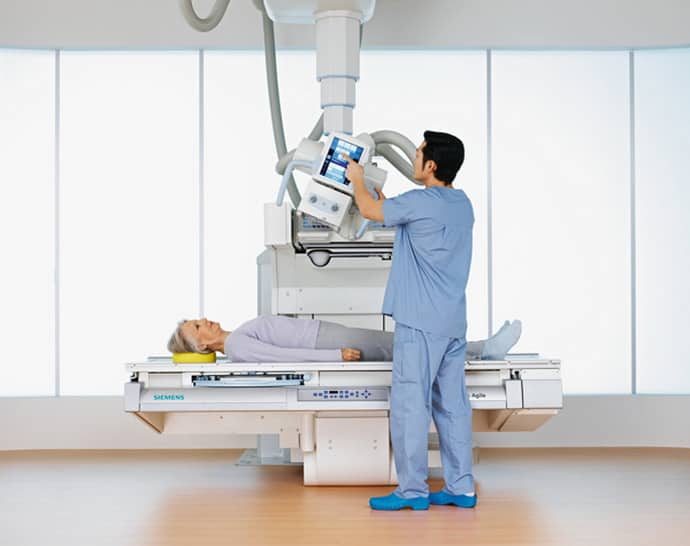
Based on the results, the correct treatment is prescribed to improve the patient’s well-being. If the cause of bloating and heartburn is a disease, special therapy will be required. The doctor will prescribe medications, the list of which depends on the cause of heartburn. As a last resort, surgical intervention will be required if pharmaceutical drugs do not help.
When the disease is absent, a person can be recommended to use Maalox, Almagel and Phosphalugel to eliminate burning and bloating. You can use folk recipes: tinctures of calendula flowers, yellow gentian, aloe juice and centaury. You should also review your lifestyle to reduce the likelihood of heartburn and bloating.
Preventive measures
You can prevent flatulence and belching by leading an active lifestyle. It is necessary to walk in the fresh air every day; at any age it is useful to engage in physical exercise or sports.
A lot of attention needs to be paid to creating a daily menu. Fried foods and fast food should be excluded from the diet, and it is advisable to limit sweets and starchy foods.
If you have chronic diseases, you should not neglect the recommendations of doctors. It is necessary to undergo regular preventive examinations, and in case of exacerbations, do not self-medicate.











